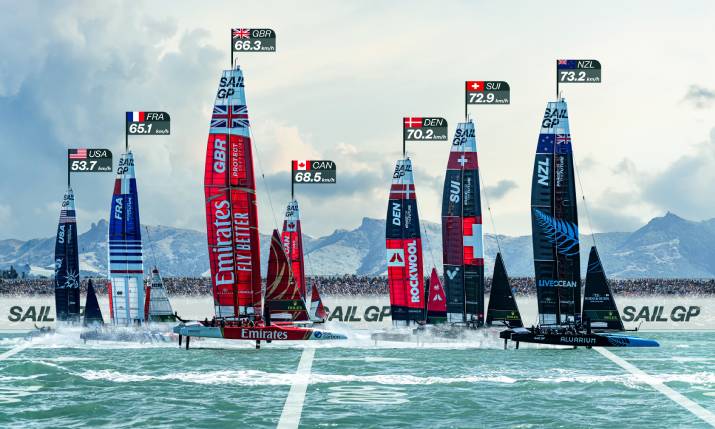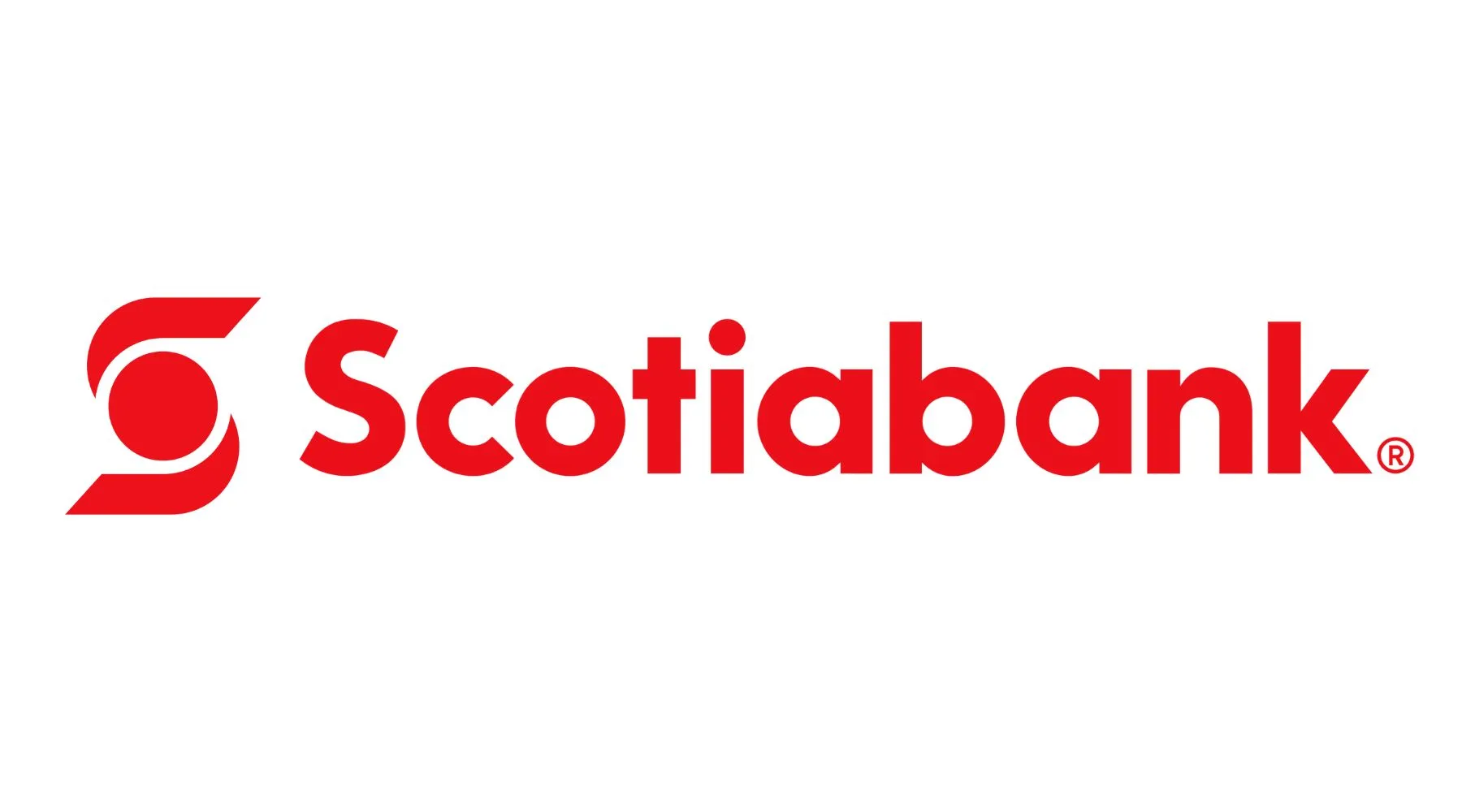Relaxed atmosphere will allow the broadcaster to get closer to players on the ice
As temperatures drop in the dead of winter, the NHL’s hottest stars will fly south to Florida’s FLA Live Arena for 2023 Honda NHL All-Star Weekend. ESPN will be in the driver’s seat for the two-day, show-stopping event with an impressive technological arsenal, including Goalie Cam, aerial views from an indoor Supracam system and a live drone outside the venue, and multiple augmented-reality overlays.
ESPN will deploy 55 native cameras and share resources with Sportsnet, TVA, and NHL Network.
“Since this is our second year covering All-Star Weekend, we get to improve from what we learned last year by finding ways to strengthen our coverage while expanding access and creativity,” says Linda Schulz, coordinating producer, ESPN. “Documentation will always be priority number one, but the fact that it’s an exhibition game means that fun is a close second.”
Tech Additions: Goalie Cam, Flyable Devices
Similar to coverage of the NFL Pro Bowl, the broadcaster is pulling out all the production stops to bring a high-quality broadcast to fans watching at home. The biggest addition, pending league approval, is integration of wearable cameras on the chest or head of players and referees. The most notable is Goalie Cam, which will be provide a view on what it’s like to be between the pipes and inside the goalie’s crease.
Inside the arena, a four-point, gyro-stabilized Supracam system will fly above the surface of the ice. Outside, ESPN’s team will pilot a drone, which will also be joined by Goodyear’s aerial coverage.
More than 15 POVs will be installed in the various nets used during the two-day showcase.
Augmented reality will be featured on both Supracam and the live drone through real-time graphics displayed virtually on the ice and on exterior surroundings. It will be configured with the help of two onsite servers to enhance the angles seen through the two flyable devices. In addition, 10 Vizrt engines will support the virtual graphics as well as handling insert graphics and player tracking during the game and studio coverage. SMT will also play a part in the graphical implementation and the statistics seen on the broadcast. Through the company’s data-based graphics system, or OPTICS, both the Skills Competition and All-Star Game will benefit from this platform. For the former, Upper Deck NHL Fastest Skater will see enhanced overhead zone cameras with graphical IDs tracking live player speed and path around the ice as well as GEICO NHL Hardest Shot tapping into telestrated replays from four camera angles with puck speed and trail. For the latter, the contest will see an enhanced game camera with player tracking graphics including player IDs, disc highlights, and puck and player trails as well as “Pointer for Possessor” player IDs, which will identify each player who gains possession of the puck during live play.
Aside from the main attractions, the camera complement is highlighted by a Sony HDC-4800 and I-Movix ultra-high-frame-rate cameras; more than 15 POVs: several RFs mounted in the nets, six robotic systems with super-slow-motion capability, other high-frame-rate cameras in the nets, and six Q-Ball robos.
Time for Experimentation: Exhibition Format Allows Greater Access
Out-of-the-box thinking and creative implementations aren’t always available during the NHL regular season, but, because the two All-Star days are purely for fun, ESPN has a lot more leeway for playing around with technology. Promoting competitiveness by providing a fair playing field for both teams without obstacles or disruptions is the first priority. During All-Star Weekend, it’s all about capturing unique camera angles and intimate shots of the game’s biggest names. From the broadcaster’s perspective, challenging the team to come up with ideas has been support by the league.
FLA Live Arena, home to the Florida Panthers, will be the center of the NHL world this weekend.
“The NHL has been incredibly collaborative in the brainstorming sessions,” says Schulz. “As we presented requests, they’ve explored the feasibility and safety while increasing the access and technology of the broadcast.”
Besides Goalie Cam and Supracam, the broadcast will deploy cameras at points where players or officials are on or close to the ice: two RF Skate Cams on Ronin gimbals to capture players on the ice and on the bench during the Skills Competition, five roaming RF reporter packs for flexibility around the venue, and two reporters on each bench during the All-Star Game. For specific events, such as the Hardest Shot and Honda NHL Accuracy Shooting, the crew wants to get as tight as possible, meaning that the Supracam system can get down near ice level.
“The Skills Competition offers more flexibility and more-intimate engagement with the players and celebrity judges,” says Jon Winders, operations specialist, ESPN. “We wanted to further highlight the players’ individual skills and performances with more ISO microphones, tighter flight parameters for the Supracam over the ice and ‘invading’ the scoring zone, and unique POV angles in and around the nets.”
Since the Skills Competition can feel drastically different from the All-Star Game, which resembles a more traditional televised hockey game, the drastic difference between both events has forced the production team to add a pit producer. Resembling the pit producer’s role during ESPN’s years producing NASCAR, this pit producer will effectively communicate the different elements needed for the fast-paced nature of the Skills Competition.
Game Creek Video 79 and Spirit will drive the production from the compound.
“The Skills Competition is nothing like what the NHL team will cover all year,” adds Schulz. “Our approach was to determine what technology we needed for Skills and reviewing that we were covered for the game.”
Compound Workflows: Increased Onsite Presence, GREMI Model Still a Factor
Outside FLA Live Arena in Sunrise, FL, Game Creek Video 79 A and B units will drive the main production of both the Skills Competition and the All-Star Game. For these two tentpole productions, the crew’s 55 native video feeds will mesh with resources sent over by the NHL and the various rightsholders returning onsite this year. The shared feeds with Sportsnet (all six Q-Ball robos), TVA (all high-frame-rate net cameras), and NHL Network will bump that number to slightly over 75, ultimately creating an eye-popping experience for fans. Game Creek Video Spirit A and B will handle the studio shows before heading north on I-96 to cover the Washington Capitals vs. Boston Bruins on Saturday, Feb. 11 at 3:30 p.m. ET on ABC.
Although the onsite trucks are handling the bulk of the technologies, the biggest piece of the puzzle to be figured out was how to handle two major productions within a 24-hour span. With the Skills Competition ending late today and the studio programming beginning before the start of the All-Star Game at 3 p.m. tomorrow, the window is a little smaller. Luckily, the operations crew planned well.
ESPN’s operations trailer is in a Florida state of mind.
“We made sure to keep the coverage and infrastructure for both events in mind when we were planning on coverage,” says Jeff Werner, senior remote operations specialist, ESPN. “In addition, there was no midweek game leading into the weekend, which allowed us to focus more on our overall build.”
Overall, a total of 210 credentialed members will be representing the broadcaster’s game operations, studio operations, and production department. It’s a massive onsite undertaking, but staffers at headquarters in Bristol, CT, as well as at home will play a vital role in the remote workflows used on both events.
“While we’ve moved some of remote-based roles back onsite,” says Brock Wetherbee, operations specialist, ESPN, “we will still utilize our GREMI remote-control workflow for at least five EVS servers and two insert graphics devices. We’ll also leverage a cloud-based editing system and our partnership with Creative Mobile Solutions to deliver content to and from each truck to the various groups working remotely.”
Onsite Studio Coverage: Multiple Sets at FLA Live Arena
Setting the scene will be three of the broadcaster’s top-flight NHL programs. The Point, featuring host Steve Levy and analysts Chris Chelios and Mark Messier, will air on Friday at 4 p.m. on ESPN2 and ESPN+ leading up to the Skills Competition. The Drop, hosted by Arda Öcal and Greg Wyshynski, will live-stream on the ESPN App and ESPN’s YouTube, Twitter, and Facebook platforms at 2:30 p.m. on Saturday before the All-Star Game. In the Crease will air exclusively on ESPN+ after both events.
The programs will be housed at two separate locations: the Sunset Balcony and adjacent outdoor patio outside FLA Live Arena and a Florida-inspired set near the top concourse of the venue. The area will replicate the vibe of a tiki bar with palm trees and umbrella drinks. On the tech side, the set will feature an RF camera, jib camera, and multiple underwater GoPros. NHL-run activations at Fort Lauderdale Beach, the NHL Red Carpet, NHL Media, and SportsCenter offering hits from around the area will be linked to the set and production truck through TVU Networks’ bonded-cellular solutions.
ESPN has tapped premier talent to call both events. Play-by-play announcer John Buccigross, analyst Brian Boucher, and reporters AJ Mleczko, Emily Kaplan, Kevin Weekes, and P.K. Subban will be on Friday’s Skills Competition. Play-by-play announcer Sean McDonough, analyst Ray Ferraro, Weeks, and Kaplan will be on Saturday’s All-Star Game. Special guests, including Tampa Bay Lightning left wing Pat Maroon, will also be on hand during the next two days.
Impactful Sound: RF Mics, Miked-Up Players Amp Up Audio Efforts
Any event associated with the NHL wouldn’t be complete with ample attention to the audio front. Spearheaded by ESPN Lead Hockey A1 Dan “Buddha” Bernstein, the team are tasked with the audio of a wealth of talent for the Skills Competition, real-time conversations with players on the ice via four RF microphones/IFBs, and a lot more.
The remote studio operations team has constructed a tiki bar-inspired set at FLA Live Arena.
“Audio will be a huge factor at this event, particularly at the Skills Competition,” says Schulz. “We plan to weave our talent into the broadcast from skill to skill, so the energy and creativity of this plan results in an incredibly challenging choreography of voices, mics, and audio formatting.”
For a more in-depth look at the network’s audio strategy, click HERE.
Getting the Call: Ops Crew Bring Its A Game to Sunrise, FL
For an NHL player — or any professional athlete, for that matter — getting the nod to participate in an All-Star Game is worth celebrating. This midseason contest gives players a chance to enjoy the purity of the game and reflect on their journey here. It’s not far off from how ESPN constructs remote operations and production teams: the main goal is putting together a team whose members trust each other and knows how to put the fans at the heart of their work.
“When we develop our Remote Operations All-Star team,” says Erin Orr, senior manager, remote operations, ESPN, “we take a similar approach [to the players], selecting people for their skill set, attitude, hustle, and overall team mentality. From the technical crew to our remote traffic, resource, and operations teams, each player matters.”
Besides Schulz, the production team includes Production Coordinator Camille Bova, Senior Production Manager Rebecca Preston, and Production Manager Andrea Fonseca. From an operational perspective, Orr, Werner, Wetherbee, and Winders are assisted by Operations Coordinator Carson Kenney; Operations Producers Matt Pecarovich, Phil Erwin, and Charlie Cruz; Crewing Coordinator Paula Grahame; Assistant Manager, Remote Traffic, Daryl Timothy; Senior Remote Traffic Coordinator Ryan Wentworth; Remote Production Operations Manager Liza Cole; Remote Operations Specialist Kevin Cleary; Senior Operations Coordinator Franca Focaretta; Senior Coordinating Director, Remote Production Operations, Kevin Gauthier; and Coordinating Director, Remote Production Operations, Carlton Young.
Midseason Showcase: ESPN Teamwork Produces Two-Day Celebration
Halfway through its second season back with the NHL, ESPN has high-profile matchups stacked up in the latter half. A majority have playoff implications, but soon to be played is the 2023 NHL Stadium Series between the Washington Capitals and Carolina Hurricanes at NC State’s Carter-Finley Stadium on Saturday, Feb. 18. A handful of impressive technological enhancements will be added to that game, but, with those responsibilities still two weeks away, ESPN is relishing this moment and honoring the behind-the-scenes folks that get the job done.
“No one can put a television show on alone,” notes Orr. “Our entire team is instrumental to the final product. We put a lot of time and thought into all of our All-Stars, and we’re proud of the incredible commitment each person brings to the project.”
Coverage of the NHL All-Star Skills Competition on ESPN and ESPN+ will begin on Friday, Feb. 3 at 7 p.m. ET and concludes with the Honda NHL All-Star Game on ABC, ESPN+, and ESPN Deportes on Saturday, Feb. 4 at 3 p.m.


